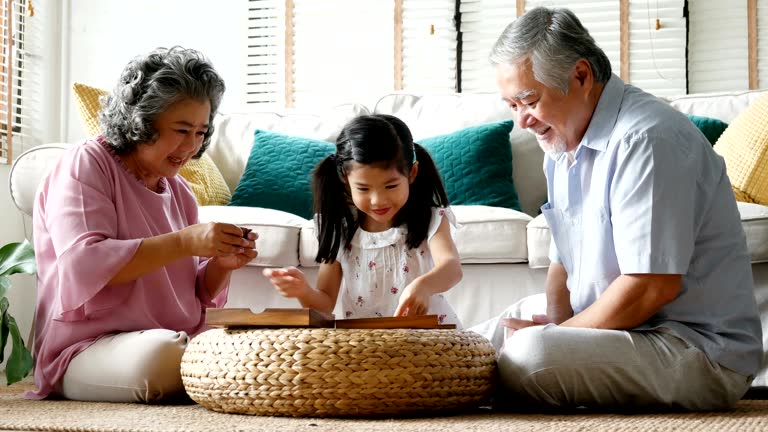Traveling across the vastness of Asia, one of the first things you notice is how people address strangers as “auntie” or “uncle.” This isn’t just some quirky tradition—it’s an integral part of the social fabric. Whether in Singapore, India, Malaysia, or China, these terms reflect deep respect, community ties, and shared responsibility for the younger generation. But what does this say about society at large? And why does this tradition persist, even in today’s fast-paced, urbanized world?
The Origins: A Communal Approach to Child-Rearing
The terms “auntie” and “uncle” in Asia have roots in communal parenting.
Traditionally, many Asian societies operated within strong community frameworks where children weren’t just raised by their biological parents but by a network of adults who played active roles in their upbringing. Often referred to as allo-parenting, this system ensured children received guidance, discipline, and affection from multiple sources.
As Pulitzer Prize winner Jared Diamond explains in The World Until Yesterday, this communal approach instills in children a profound sense of belonging and security, equipping them for the challenges of adulthood.
A Modern Tradition: Why It Still Matters
Even as Asia modernizes, it clings to the tradition of addressing elders as “auntie” and “uncle.” But why does it endure in an increasingly individualistic world?
- Respect for Elders: In most Asian cultures, respect for elders remains a cornerstone of societal values. Addressing someone as “auntie” or “uncle” acknowledges their experience and wisdom, even if they’re not related by blood. This practice fosters a culture of respect crucial for societal harmony.
- Fostering Community: These familial terms promote a sense of community and shared identity. In multi-ethnic societies like Malaysia, addressing someone as “uncle” or “auntie” transcends racial and ethnic lines, reinforcing unity and belonging.
- Creating Warmth and Approachability: Using familial terms in daily interactions adds warmth and friendliness. It breaks down barriers, making conversations more engaging and open—especially valuable in isolating urban environments.
- Preserving Cultural Identity: Practices like the “auntie-uncle” tradition help preserve cultural identity in a rapidly globalizing world. They connect the past with the present, ensuring values that shaped society are passed down to younger generations.
A Day in the Life: How Aunties and Uncles Influence Daily Life
Imagine a typical day in any Asian city. You step out for breakfast, and the food stall lady—your “auntie”—knows your usual order and adds extra noodles because you remind her of her nephew. The bus driver—”uncle”—greets everyone warmly, driving with the care of someone transporting his own children. At work, the cleaner—another “auntie”—nods knowingly as she tidies your space with the diligence of a mother ensuring her child’s comfort.
These small interactions build a sense of connection and care throughout the day. It’s about more than politeness—it’s about belonging to an extended family. Aunties and uncles contribute significantly to this dynamic:
- Confidantes for Sensitive Issues: Children often feel more comfortable discussing personal matters with an aunt or uncle than with their parents. These relationships strike a balance between familiarity and a slight detachment, making them both familial and friendly.
- Nurturing Interests: Aunties and uncles often nurture children’s hobbies or talents, especially when parents are too busy or disinterested. Their encouragement and resources can help children flourish in ways parents might not have been able to.
- Tellers of Family History: They are keepers of family stories, offering perspectives on parents and grandparents that enrich children’s understanding of their heritage.
- More Role Models: By providing different viewpoints and life experiences, aunties and uncles contribute to a child’s well-rounded development.
Aunties and Uncles in the Wider Community
In most Asian cultures, the roles of aunties and uncles extend beyond the family to the community:
- Public Space Disciplinarians: It’s normal for elders to scold misbehaving children, even if unrelated. This communal discipline reinforces shared values and proper behavior.
- Caregivers in Times of Need: Aunties and uncles often step in when parents are unavailable, providing temporary childcare or financial assistance. They form an essential part of the community’s social safety net.
- Community Organizers: Festivals, events, and gatherings are often orchestrated by aunties and uncles, ensuring traditions are passed down and communities stay connected.
Difficulties and Changing Roles for Aunties and Uncles
Modern life has challenged these traditional roles. Urbanization, nuclear families, and Western individualistic values have weakened the bonds that sustained auntie-uncle relationships. With limited leisure time and the rise of digital communication, face-to-face interactions have diminished, threatening the tradition.
Preserving the Tradition: Why It’s Important
Despite these challenges, preserving the auntie-uncle culture is vital:
- Mental Health Benefits: Research shows that children raised in close-knit communities experience fewer mental health issues, with extra parental figures providing emotional support against life’s stresses.
- Cultural Continuity: Traditions like these ensure newer generations remain connected to their roots.
- Parental Support: Communal child-rearing eases the burden on parents, making parenting more manageable and fulfilling.
- Stronger Communities: These traditions cultivate unity and collective well-being, creating cohesive communities.
Conclusion: The Resilience of Aunties and Uncles
The auntie-uncle culture in Asia goes beyond tradition; it represents enduring community strength, respect, and shared responsibility. In a world increasingly focused on individualism, this culture reminds us that we’re all part of something larger.
By celebrating and preserving these relationships, we ensure future generations continue to benefit from the warmth, wisdom, and support provided by aunties and uncles. The next time you hear someone addressed as “auntie” or “uncle,” remember the legacy of love, care, and community these words carry.







